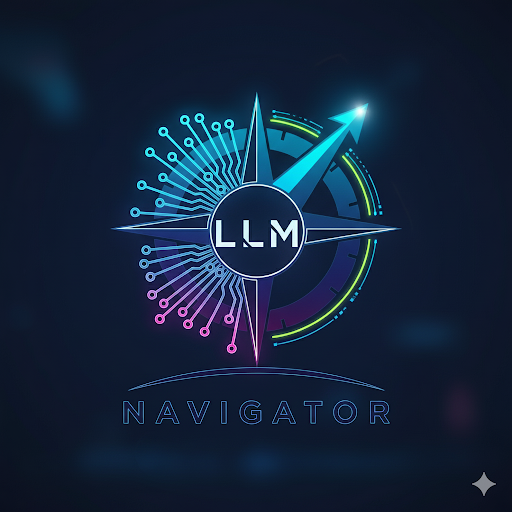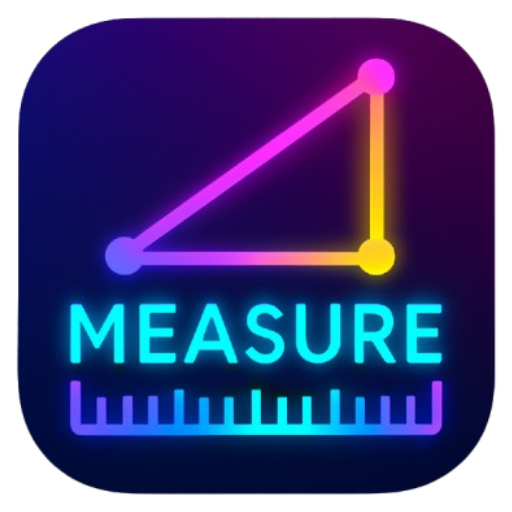Ollama LLM Throughput Benchmark
Alternatives
0 PH launches analyzed!

Ollama LLM Throughput Benchmark
Measure & Maximize Ollama LLM Performance Across Hardware
5
Problem
IT teams and developers currently rely on traditional tools and methods to benchmark and optimize Local LLMs (Large Language Models), which lack precise benchmarks and standardized performance measurement metrics across different hardware setups.
Decision-makers face difficulty in choosing the appropriate hardware to deploy LLMs due to insufficient data-driven insights.
Solution
A benchmarking tool that measures throughput for local LLMs, offering real insights for IT teams, data-driven metrics for decision-makers, and precise benchmarks for developers.
It simplifies LLM deployment, aids decision-making on hardware selection, and helps in optimizing model performance.
Customers
IT teams, decision-makers in technology firms, and developers involved in deploying and optimizing language models in businesses.
Unique Features
Provides a standardized benchmark for local LLMs, offering precise throughput metrics and insights tailored to different hardware configurations.
User Comments
The product simplifies decision-making for hardware related to LLM deployment.
It offers valuable insights for IT teams to optimize models.
Developers appreciate the data-driven metrics to improve LLMs.
The tool provides clear and precise benchmarks.
Helps in making informed and confident hardware choices.
Traction
The product is newly launched on ProductHunt.
Detailed traction data like number of users or revenue is not available from the provided information.
Market Size
The global market for artificial intelligence in the hardware sector was valued at approximately $4.63 billion in 2020 and is expected to grow at a CAGR of 37.5% from 2021 to 2028.

Can I Run This LLM ?
If I have this hardware, Can I run that LLM model ?
6
Problem
Users face a situation where determining if their hardware can support running a specific LLM model is challenging.
The old solution involves manually checking hardware specifications and compatibility issues with LLM models.
The drawbacks include the time-consuming and potentially confusing process of assessing compatibility individually for each model and hardware setup.
Solution
A simple application that helps users determine if their hardware can run a specific LLM model by allowing them to choose important parameters
Users can select parameters like unified memory for Macs or GPU + RAM for PCs and then select the LLM model from Hugging Face.
This simplifies the process of checking hardware compatibility with LLMs.
Customers
AI and machine learning enthusiasts
individuals interested in deploying LLM models on personal machines
these users seek to understand hardware compatibility with LLMs
tend to experiment with different models
interested in AI research and development
Unique Features
The application offers a straightforward interface for comparing hardware with LLM requirements.
It integrates with Hugging Face to provide a comprehensive list of LLM models.
The ability to customize parameters such as unified memory and GPU/RAM provides flexibility.
User Comments
Users find the application helpful for assessing hardware compatibility.
The interface is appreciated for its simplicity and ease of use.
Some users noted it saves time in researching compatibility.
There's interest in expanding the range of supported LLM models.
Users have commented positively on its integration with Hugging Face.
Traction
Recently launched with initial traction on Product Hunt.
Exact user numbers and financial metrics are not explicitly available.
The application's integration with existing platforms like Hugging Face suggests potential for growth.
Market Size
The global AI hardware market was valued at approximately $10.41 billion in 2021 and is expected to grow substantially.
With the rise of AI models, hardware compatibility tools have increasing relevance.

Open Source LLM Performance Tracker
An open source Next app template to monitor your AI apps
22
Problem
Developers and teams using LLMs in their applications struggle to manually track and analyze LLM call performance, leading to inefficient debugging, lack of real-time insights, and difficulty scaling AI-powered features.
Solution
An open-source Next.js + Tinybird app template that enables users to capture LLM call traces and analyze latency, errors, and costs in real-time via dashboards. Example: Monitor OpenAI API response times and token usage per request.
Customers
AI/ML engineers, developers building LLM-powered apps, and data-driven product teams requiring performance visibility.
Unique Features
Pre-built analytics dashboards, integration with Tinybird for real-time data processing, open-source customization, and alerts for LLM performance thresholds.
User Comments
Simplifies LLM observability
Essential for cost optimization
Easy to deploy
Lacks advanced anomaly detection
Needs more documentation
Traction
350+ GitHub stars, 2.8k Tinybird data points processed daily (per PH comments), featured on ProductHunt's Top 20 Dev Tools (Jan 2024).
Market Size
The global AI monitoring market is projected to reach $11.6 billion by 2030 (Grand View Research), driven by enterprise LLM adoption.
LLM Speed Check
Measure Your LLM's Speed, Right on Your Device!
10
Problem
Users previously relied on cloud-based tools or manual methods to benchmark LLM performance, which required external infrastructure dependencies and delayed feedback
Solution
A local device testing tool that enables users to measure LLM speed, latency, and throughput in real-time without cloud integration, e.g., benchmarking models like GPT-3 or Llama directly on their hardware
Customers
AI developers, ML engineers, and data scientists optimizing LLM deployments for edge devices or cost-efficiency
Alternatives
View all LLM Speed Check alternatives →
Unique Features
On-device benchmarking with offline execution, comparative metrics for multiple LLMs, and hardware-specific performance insights
User Comments
Simplifies local LLM optimization
Saves cloud costs
Instant latency feedback
Lightweight integration
Essential for edge AI workflows
Traction
Featured on ProductHunt with 980+ upvotes and 60+ comments
Used by 5K+ developers as per GitHub repositories
Market Size
The global AI infrastructure market is projected to reach $76.6 billion by 2028 (Statista, 2023), driven by LLM optimization demands
Problem
Users need to integrate different LLM providers manually, leading to complex integration processes and high development overhead when switching models
Solution
A developer tool (router) that lets users switch between LLM providers via a single string parameter, e.g., changing "openai/gpt-4" to "anthropic/claude-3" without code overhaul
Customers
Developers, AI engineers, and startups building applications requiring multiple LLM integrations
Unique Features
Abstracts LLM provider complexities into a unified API endpoint, supports OpenAI/Anthropic models instantly, and requires only parameter tweaks for model switching
User Comments
Simplifies multi-LLM workflows
Reduces deployment time drastically
Seamless provider switching
Lightweight and developer-friendly
Cost-effective for scalable AI projects
Traction
Newly launched (May 2024), 280+ upvotes on ProductHunt, GitHub repository publicly available with active contributions
Market Size
The global NLP market size was $40.8 billion in 2023 (Grand View Research), driven by LLM adoption
Problem
Users measure real-world objects and spaces using traditional tools like tape measures, laser measures, or manual estimation. Traditional methods are time-consuming, require physical tools, and often lack precision, especially for large or irregularly shaped areas.
Solution
A mobile app using AR (augmented reality) technology that allows users to measure real-world length and area using their phone's camera. Users can instantly capture dimensions of objects, rooms, or surfaces with one tap, providing fast and accurate measurements.
Customers
Architects, contractors, interior designers, real estate agents, and DIY enthusiasts who need quick and reliable measurements for projects, renovations, or property assessments.
Alternatives
View all Measure alternatives →
Unique Features
AR-powered precision, one-tap measurement, intuitive interface for complex shapes, instant area calculation, and portability (no physical tools required).
User Comments
Saves time compared to manual tools
Surprisingly accurate for DIY projects
Easy to measure hard-to-reach areas
Useful for real estate documentation
Intuitive even for non-tech users
Traction
Launched 1 month ago on ProductHunt with 500+ upvotes
50,000+ downloads globally
Freemium model with $4.99/month premium tier
Market Size
The global AR market in consumer and enterprise applications is projected to reach $18.7 billion by 2025 (Statista 2023), with measurement tools driving adoption in construction, real estate, and retail sectors.

Deepchecks LLM Evaluation
Validate, monitor, and safeguard LLM-based apps
294
Problem
Developers and companies face challenges in validating, monitoring, and safeguarding LLM-based applications throughout their lifecycle. This includes issues like LLM hallucinations, inconsistent performance metrics, and various potential pitfalls from pre-deployment to production.
Solution
Deepchecks offers a solution in the form of a toolkit designed to continuously validate LLM-based applications, including monitoring LLM hallucinations, performance metrics, and identifying potential pitfalls throughout the entire lifecycle of the application.
Customers
Developers, data scientists, and organizations involved in creating or managing LLM (Large Language Models)-based applications.
Unique Features
Deepchecks stands out by offering a comprehensive evaluation tool that works throughout the entire lifecycle of LLM-based applications, from pre-deployment to production stages.
User Comments
Users have not provided specific comments available for review at this time.
Traction
Specific traction details such as number of users, MRR, or financing are not available at this time.
Market Size
The market size specifically for LLM-based application validation tools is not readily available. However, the AI market, which includes LLM technologies, is projected to grow to $641.30 billion by 2028.

LLM Navigator
Pick the Perfect LLM for Your Budget in Seconds
6
Problem
Users need to manually compare AI language models from providers like OpenAI, Anthropic, and Google, leading to inefficiency and inaccurate cost estimates due to fragmented data and varying pricing structures.
Solution
A cost-comparison tool that lets users evaluate LLMs across providers, offering detailed token/word/character-based cost calculations (e.g., comparing GPT-4 vs. Claude 3 for a 10K-token project).
Customers
AI developers, data scientists, and product managers in tech startups or enterprises who require budget-optimized LLM selections for applications like chatbots or content generation.
Unique Features
Aggregates real-time pricing and performance metrics from multiple LLM providers into a single interface, with customizable input parameters (tokens, words) for precise cost projections.
User Comments
Saves hours of manual research
Clarifies hidden costs per model
Simplifies vendor comparisons
Essential for budget planning
Intuitive interface for non-experts
Traction
Launched on ProductHunt in 2024; exact revenue/user metrics undisclosed, but positioned as a niche solution in the rapidly growing LLM optimization space.
Market Size
The global LLM market is projected to reach $40.8 billion by 2029 (MarketsandMarkets, 2023), with cost-optimization tools addressing a critical pain point for enterprise adoption.

LLM Toolbox
Enhances your LLM experience by providing a set of tools
4
Problem
Users manually switch between multiple LLM tools and platforms, leading to inefficient workflows and fragmented experiences.
Solution
A browser extension with integrated LLM tools enabling users to access prompt engineering, API management, and real-time model optimization directly in their browser.
Customers
Developers, data scientists, and content creators who frequently use LLMs for coding, data analysis, or content generation.
Unique Features
Centralized access to LLM tools, real-time model performance enhancements, and cross-platform compatibility within a single browser interface.
User Comments
Saves hours switching tools
Simplifies API integrations
Boosts productivity for LLM tasks
Intuitive interface
Essential for daily workflows
Traction
Launched on ProductHunt with 850+ upvotes, 5k+ installs, and 4.8/5 rating. Recent update added GPT-4 optimization.
Market Size
The global browser extension market is projected to reach $3.5 billion by 2025, driven by productivity tools.

LLM Patches
Marketplace for Gen AI model security & performance patches
4
Problem
Users are struggling to maintain the security and performance of their Large Language Models due to lacking timely updates and patches.
The old situation involves manually sourcing and implementing patches, which has several drawbacks: increased risk of breaches, reduced performance, and the need for significant technical expertise.
Solution
A marketplace for essential updates, fixes, and tools that enhance the safety, performance, and functionality of Large Language Models.
Users can access a centralized platform to find and apply patches, improving their AI models' reliability and security.
Customers
Data scientists and AI developers working with Large Language Models in tech companies, research labs, and startups.
These users require up-to-date security and performance enhancements for their AI models to ensure optimal function and protection against vulnerabilities.
Unique Features
Centralized marketplace for AI model updates.
Focus on security and performance improvements for Large Language Models.
User Comments
Users appreciate the convenience of a single marketplace for patches.
The product is beneficial for maintaining AI model security.
Users recommend improvements in user interface.
Some users are seeking more extensive patch options.
The platform is seen as a useful tool for AI model optimization.
Traction
Launched recently on Product Hunt.
No specific data on users or revenue provided.
Market Size
The global AI market was valued at $62.35 billion in 2020, and the demand for AI model enhancements, like patches, is expected to grow due to increasing AI adoption.

